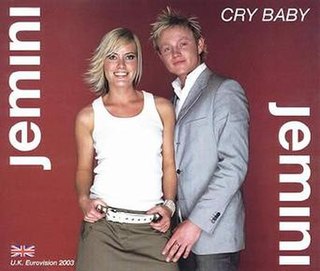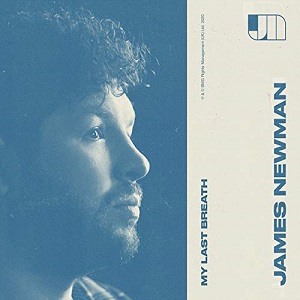The United Kingdom competed in the Eurovision Song Contest 1998. In addition, the British Broadcasting Corporation (BBC) was also the host broadcaster and staged the event at the National Indoor Arena in Birmingham on 9 May 1998 after the nation won the competition in 1997 with the song "Love Shine a Light" performed by Katrina and the Waves. The BBC organised a public selection to select its entry for the contest, The Great British Song Contest 1998. Eight songs competed over two rounds, with four songs selected through a radio-broadcast semi-final advancing to the televised final round, held on 15 March 1998, where viewers selected the winning entry through televoting. Imaani received the most votes and was selected to represent the UK in the contest with the song "Where Are You?". Imaani performed 16th at the international contest, and at the close of the voting process the UK finished in second place with 166 points, the nation's 15th second-place finish since its debut.
The United Kingdom competed in the Eurovision Song Contest 1999, held on 29 May 1999 at the International Convention Center in Jerusalem, Israel. The British Broadcasting Corporation (BBC) organised a public selection process to determine its entry for the contest, The Great British Song Contest 1999. Eight songs competed over two rounds, with four songs selected through a radio-broadcast semi-final to advance to the televised final round, held on 7 March 1999, where viewers selected the winning entry through televoting. Girl group Precious received the most votes and were selected to represent the nation in the contest with the song "Say It Again".
The United Kingdom participated in the Eurovision Song Contest 2001 with the song "No Dream Impossible" written by Russ Ballard and Chris Winter. The song was performed by Lindsay Dracass. The British entry for the 2001 contest in Copenhagen, Denmark, was selected via the national final A Song for Europe 2001, organised by the British broadcaster BBC. Eight acts competed in the national final which consisted of a semi-final and a final, during which the winner was selected entirely through a public televote.
The United Kingdom participated in the Eurovision Song Contest 2004 with the song "Hold Onto Our Love" written by Gary Miller and Tim Woodcock. The song was performed by James Fox. The British entry for the 2004 contest in Istanbul, Turkey was selected via the national final Eurovision: Making Your Mind Up 2004, organised by the British broadcaster BBC. Six acts competed in the national final and the winner was selected entirely through a public vote.

Eurovision: You Decide is the most recent name of a BBC television programme that was broadcast annually to select the United Kingdom's entry for the Eurovision Song Contest. The show had previously gone under several other names, including Festival of British Popular Songs (1957), Eurovision Song Contest British Final (1959–1960), The Great British Song Contest (1996–1999), Eurovision: Making Your Mind Up (2004–2007), Eurovision: Your Decision (2008), and Eurovision: Your Country Needs You (2009–2010), but was known, for most of its history, as A Song for Europe.
The United Kingdom participated in the Eurovision Song Contest 2005 with the song "Touch My Fire" written by Javine Hylton, John Themis and Jonathan Shalit. The song was performed by Javine. The British entry for the 2005 contest in Kyiv, Ukraine was selected via the national final Eurovision: Making Your Mind Up 2005, organised by the British broadcaster BBC. Five acts competed in the national final and the winner was selected entirely through a public vote.
The United Kingdom participated in the Eurovision Song Contest 2008 with the song "Even If" written by Andy Abraham, Paul Wilson and Andy Watkins. The song was performed by Andy Abraham. The British entry for the 2008 contest in Belgrade, Serbia was selected via the national final Eurovision: Your Decision, organised by the British broadcaster BBC. Six acts competed in the national final and the winner was selected through three rounds of voting.

The United Kingdom has participated in the Eurovision Song Contest 65 times. It first took part in the second contest in 1957 and has entered every year since 1959. Along with Sweden and the Netherlands, the UK is one of only three countries with Eurovision victories in four different decades. It is one of the "Big Five" countries, along with France, Germany, Italy and Spain, that are automatically prequalified for the final each year as they are the biggest financial contributors to the European Broadcasting Union (EBU). The British national broadcaster, the BBC, broadcasts the event and has, on multiple occasions, organised different national selection processes to choose the British entry. The United Kingdom has won the Eurovision Song Contest five times, and has finished as runner-up on a record sixteen occasions. The UK has hosted the contest a record nine times, four times in London and once each in Edinburgh (1972), Brighton (1974), Harrogate (1982), Birmingham (1998), and Liverpool (2023).

"Cry Baby", written and composed by Martin Isherwood, was the United Kingdom's entry at the Eurovision Song Contest 2003, performed by the duo Jemini. It was the first of two songs entered by the United Kingdom to earn no points from any other countries. It was also the first ever English-language song to receive no points.
The United Kingdom participated in the Eurovision Song Contest 2010 with the song "That Sounds Good to Me" written by Pete Waterman, Mike Stock and Steve Crosby. The song was performed by Josh Dubovie. The British entry for the 2010 contest in Oslo, Norway was selected via the national final Eurovision: Your Country Needs You 2010, organised by the British broadcaster BBC. Six acts competed in the national final and the winner was selected through two rounds of voting.
The United Kingdom participated in the Eurovision Song Contest 2011 with the song "I Can" written by Duncan James, Lee Ryan, Ciaron Bell, Ben Collier, Ian Hope, Liam Keenan and StarSign. The song was performed by the group Blue, which was internally selected by the British broadcaster BBC to represent the United Kingdom at the 2011 contest in Düsseldorf, Germany. Blue was announced as the British entrant on 29 January 2011, while the song "I Can" was presented to the public on 11 March 2011.

"I Can" is a song released by British boy group Blue, taken from their fourth studio album, Roulette. It was the United Kingdom's entry for the Eurovision Song Contest 2011, in Düsseldorf, Germany. It was written by group members Duncan James and Lee Ryan with Ciaron Bell, Ben Collieer, Ian Hope, Liam Keenan, and NoThwegian production team StarSign.
The United Kingdom participated in the Eurovision Song Contest 2012 with the song "Love Will Set You Free" written by Martin Terefe and Sacha Skarbek. The song was performed by Engelbert Humperdinck, who was internally selected by the British broadcaster BBC to represent the United Kingdom at the 2012 contest in Baku, Azerbaijan. Humperdinck was announced as the British entrant on 1 March 2012, while the song "Love Will Set You Free" was presented to the public on 19 March 2012.
The United Kingdom participated in the Eurovision Song Contest 2014 with the song "Children of the Universe" written by Molly Smitten-Downes and Anders Hansson. The song was performed by Molly, who was internally selected by the British broadcaster BBC to represent the United Kingdom at the 2014 contest in Copenhagen, Denmark. Molly and "Children of the Universe" was announced as the British entry in a special presentation show titled The UK Launch broadcast on the BBC Red Button service in March 2014.

"You're Not Alone" is a song by British duo Joe and Jake. It represented the United Kingdom at the Eurovision Song Contest 2016 in Stockholm after being voted first out of six at Eurovision: You Decide on 26 February. This was the first time the public had decided the entrant since 2010. The song was released on 11 March 2016 as a digital download. It reached number 81 in the UK Charts on Friday 20 May, following the Eurovision Final.
James Richard Newman is an English singer and songwriter. During the 2014 Brit Awards, he won the Brit Award for British Single of the Year as a co-writer of "Waiting All Night", a song by English band Rudimental. Newman was selected to represent the United Kingdom at the Eurovision Song Contest 2020 with the song, "My Last Breath" before its cancellation. He instead represented the country in the Eurovision Song Contest 2021 with the song "Embers”, which came in last place with nul points.

"My Last Breath" is a song by James Newman that would have represented the United Kingdom in the Eurovision Song Contest 2020 in Rotterdam. It serves as the lead single from Newman's debut EP The Things We Do. The song was released as a digital download on 27 February 2020. The song was written by Newman, Ed Drewett, Adam Argyle and Iain James.
The United Kingdom participated in the Eurovision Song Contest 2021 with the song "Embers" written by James Newman, Conor Blake, Danny Shah, Tom Hollings and Samuel Brennan. The song was performed by James Newman, who was internally selected by the British broadcaster BBC to represent the United Kingdom at the 2021 contest in Rotterdam, Netherlands after he was due to compete in the 2020 contest with "My Last Breath" before the event's cancellation. Newman was announced as the British entrant on 19 February 2021, while the song "Embers" was presented to the public on 11 March 2021.
The United Kingdom participated in the Eurovision Song Contest 2022 in Turin, Italy. British singer-songwriter Sam Ryder represented the country with his song "Space Man", which he co-wrote with Max Wolfgang and Amy Wadge. He was selected as the 2022 UK entrant by the British Broadcasting Corporation (BBC) in collaboration with record label TaP Music and their management company.

"Space Man" is a song by British singer-songwriter Sam Ryder, released as a single on 22 February 2022 through Parlophone Records. It represented the United Kingdom at the Eurovision Song Contest 2022 in Turin, Italy, after being internally selected through TaP Music and the BBC, the British broadcaster for the Eurovision Song Contest. Co-written by Ryder, Amy Wadge and Max Wolfgang, it appears on Ryder's debut studio album There's Nothing but Space, Man!, which was released on 9 December 2022.







